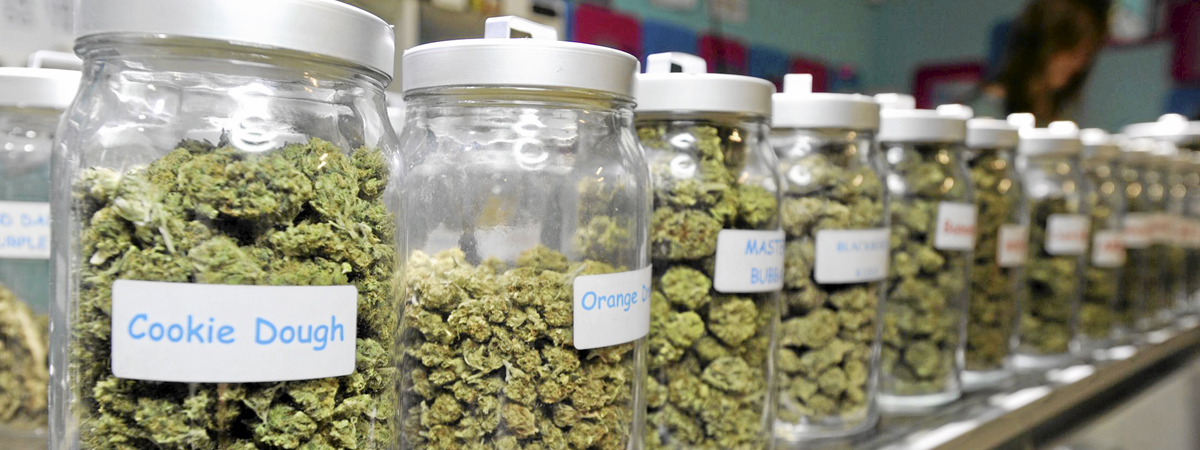Proposition 207 and the Approval of Recreational Marijuana in Arizona

Arizona Marijuana Laws 101
During the 2020 election, Proposition 207, which outlined legislation for the legalization of recreational marijuana, was approved by Arizona citizens with a 60% majority. As a result, there are a lot of questions circling about how the approval of this legislation will change the structure of drug laws in the state and what citizens can expect moving forward.
In order to answer a few common questions, we’ve compiled an outline of everything you need to know about the past, present, and future marijuana laws in the state of Arizona.
Current Marijuana and Drug Laws in Arizona
Arizona is known for being one of the toughest states in the U.S. when it comes to DUI and drug laws. So it’s no wonder that people are confused about what the future may hold for the state in regards to changing drug laws after the passing of Proposition 207.
Let’s start with the basics; specifically when it comes to drugs and driving – an area of the law that Arizona is specifically tough on.
Arizona is a zero-tolerance state. This means that (prior to Proposition 207, which is slated to go into effect at the end of November) anyone caught in possession of – or intoxicated due to – marijuana immediately faced charges. Anyone under the age of 21 found to have drugs in their system can be arrested; regardless of the amount of the drug consumed.
Regarding driving in the state, drivers automatically consent to field sobriety or chemical tests the moment they get behind the wheel of their vehicle. For this reason, police have the right to request a driver partake in one of these tests if the officer(s) believes the subject is intoxicated due to alcohol or drugs. Refusing to take one of these tests can result in a one-year license suspension.
A difficulty currently faced by the Arizona police, and one that is likely going to grow with the newly legalized recreational marijuana, is an inability to quickly test for intoxication due to drugs. Unlike alcohol, which police can test for using a breathalyzer, testing for drugs in a person’s system takes significantly longer and typically requires a blood sample; there is no such thing as a quick, on-the-go testing device. For this reason, many of Arizona’s police have been trained as “Drug-Recognition Experts,” meaning they can quickly identify the signs of inebriation and intoxication due to drugs. For this reason, many drugged driving arrests rely on identification of “signs” by the officer (things like red eyes, smell, etc.) and testing is conducted at a later time.
Then, in 2010, this zero-tolerance state became slightly more tolerant with the legalization of medical marijuana.
Medical Marijuana Laws in Arizona
Arizona became one of the 33 states in the U.S. to legalize and establish a medical marijuana program for its citizens. There are, of course, regulations and criteria citizens must meet in order to become a legal member of this program. Users must be at least 18 years of age with a valid form of identification, be a resident of the state of Arizona, and qualify for a medical marijuana card (at a doctor’s recommendation).
If an individual meets all of this criteria, they can submit an application with the Arizona Department of Health Services in order to register. There are fees incurred during this process.
Regulations also exist for how much and how often people can be in possession of marijuana. For an eligible, cardholding patient, the maximum amount of marijuana you can purchase is 2.5 ounces every two weeks. You can be in possession of this maximum amount at any time and not be punished.
As of March 2020, there are more than 238,000 active medical marijuana cardholders in the state of Arizona. Yet, despite the number of cardholders in the state, marijuana continues to be included on the list of drugs that can qualify you for a DUI violation. This is not limited to simply being in possession of the drug or being intoxication at the time of arrest; it also includes the presence of “metabolite” in your body. This refers to marijuana as it is in the process of being digested/broken down in the human body; primarily found in the liver.
In order to address the newly arisen legal needs of medical marijuana cardholders, the Arizona Supreme Court established new regulations in 2015 known as “affirmative defense” (a.k.a. AMMA). Arizona citizens in possession of a legitimate medical marijuana card were finally able to utilize a proper defense against DUI charges. This new legal precedent gave defendants the legal ability to argue that there was not enough marijuana or marijuana metabolite in their system to cause impairment while driving (at the time of the arrest).
However, it is incredibly important to note here that affirmative defense DOES NOT make medical marijuana cardholders immune to drug charges, DUI charges, or convictions. Rather, it gives them a leg to stand on in court where, before, merely the presence of marijuana in the body was enough to garner a guilty verdict.
Proposition 207 and the Approval of Recreational Marijuana in Arizona
So now we’re back to the beginning – or, rather, the present. Proposition 207 was unanimously passed by the Arizona public. This proposition outlines legislation that legalizes recreational marijuana for Arizona citizens age 21 and older. A 16% sales tax will be placed on all purchases of recreational marijuana, which will be distributed to a number of organizations throughout the state, including police and education.
For individuals in this aforementioned age bracket who choose to utilize recreational marijuana, individuals can be in legal possession of up to 2.5 ounces (or 12.5 grams of concentrate). Individuals are also legally allowed to possess and grow up to six marijuana plants.
If you or someone you know has been charged with the possession of up to 2.5 ounces of marijuana, you will have the opportunity to petition the court to have your record expunged as early as July 2021.
Important Dates to Keep in Mind
Proposition 207 officially comes into play starting on November 30th. And, yes, that DOES mean that you CAN be charged with marijuana possession in the meantime. Just because the proposition passed does not mean it starts working right away; you can and will be charged with what is legally considered a crime until that November 30th date.
The Arizona Department of Health Services will also be distributing business licenses (for the sale of recreational marijuana) to pre-existing medical marijuana companies and storefronts, as well as new, interested parties, in the near future. It is the hope of many in the industry that sales of recreational marijuana will be able to commence sometime in the spring of 2021.
How Can We Expect the Laws to Change Moving Forward?
The difficult – and somewhat troubling – part of this question is that, right now, we don’t really know. When it comes to recreational marijuana, we’re certainly going to see a lot of new regulations being worked on and constructed in the upcoming months. What exactly these will be and how they’ll have an impact on Arizona law as a whole is yet to be seen.
Regardless, the most important thing you can do right now is stay informed and know that you can still be charged with the illegal possession of marijuana until that November 30th date. Avoid any unconfirmed, unsupported facts that may be floating out there. If you ever have any doubts about how this new legislation might affect you, reach out to your legal counsel. Your lawyer will be able to walk you through what has already been implemented, what is upcoming, or what is a flat-out rumor.


















